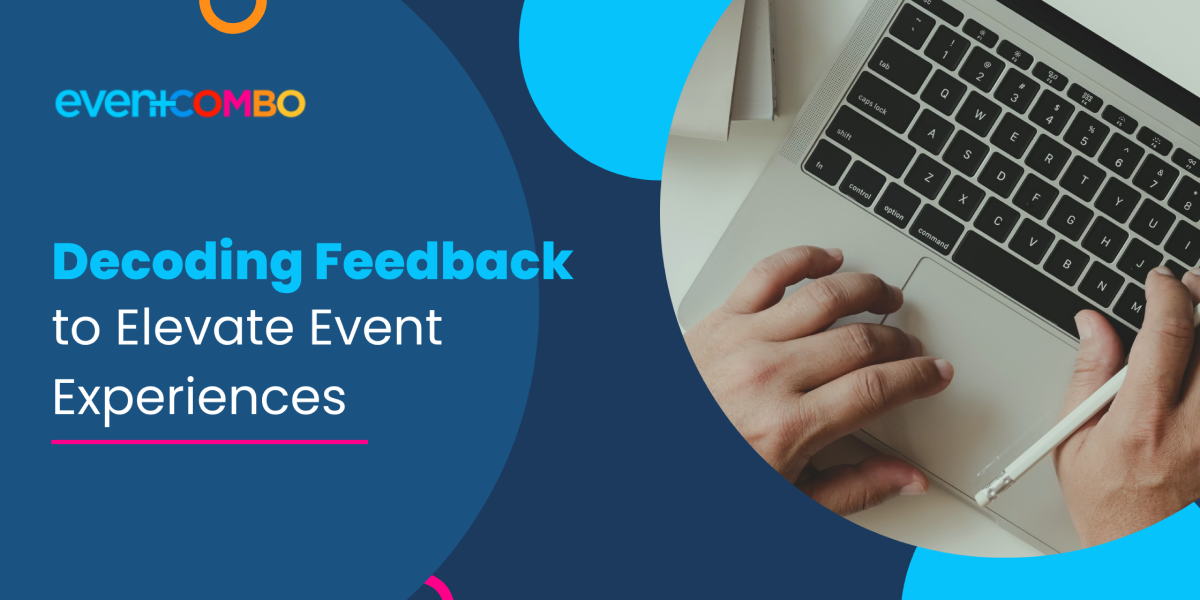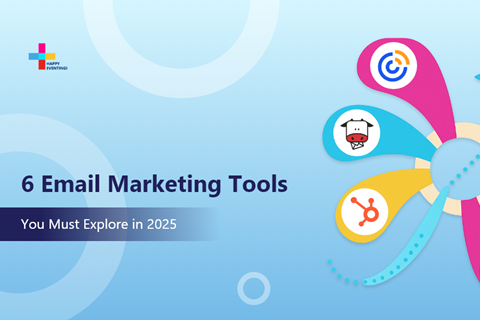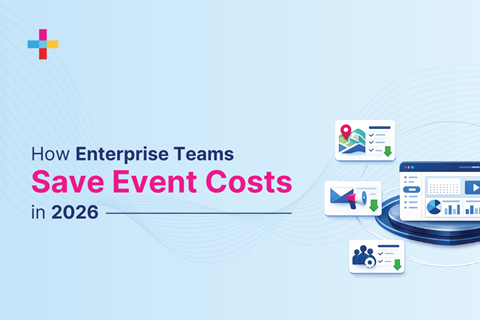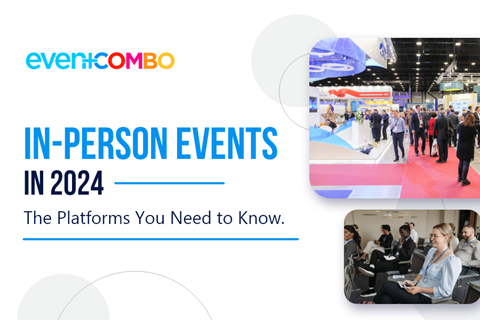Event planning and marketing have evolved, and in today's landscape, the success and ROI of an event are intrinsically tied to a critical factor — understanding your audience. Gone are the days when the one-size-fits-all approach, more or less, worked. Today's attendees crave personalized, value-added experiences that leave them truly wowed, and one impactful avenue to achieve this is through attendee feedback.
In this blog, we embark on a journey to explore the essential steps for effective event feedback analysis, meticulously designed for the benefit of event planners, marketers, and organizers. Let’s delve into the realms of data, insights, and actionable strategies.
The Significance of Attendee Feedback Analysis
Attendee feedback serves as the pulsating heartbeat of your event. It establishes a direct line to your attendees, providing a window into their experiences, expectations, and overall satisfaction levels. The true essence lies not in accumulating more data to add to the existing mountains but in unraveling the intricacies of this feedback to enhance your strategies.
To truly make a difference, feedback analysis must go beyond the superficial. It should illuminate not just what attendees liked but also the depth of their appreciation, quantifying the extent to which they enjoyed specific elements. Moreover, it should delve into the why – uncovering the driving forces behind their positive experiences. By embracing this comprehensive approach, event planners can transform raw feedback into actionable intelligence, paving the way for more engaging and memorable experiences while allowing for agile improvisation when necessary.
What is the Feedback Analysis Process?
Attendee feedback analysis is a methodical and structured process, intricately designed to extract valuable insights from the wealth of opinions shared by attendees. This systematic approach involves a series of key steps, ensuring that no valuable information goes unnoticed, and you are not gasping to go through insignificant data. To fully harness the potential of feedback, professionals must demonstrate proficiency in essential skills such as data collection, coding, theme identification, and prioritization.
Leveraging Event Tech for Enhanced Feedback Analysis
Here are the two major ways:
Data Collection:
- Maximize the efficiency of data collection by seamlessly integrating technology into your feedback acquisition process.
- Embrace the capabilities of event management software and mobile event apps designed specifically for this purpose.
- Incorporate digital surveys, QR codes, and interactive registration pages to ensure a swift and comprehensive collection of insights.
- The utilization of event tech transforms the traditionally cumbersome data collection into a streamlined and dynamic experience.
Analytics Tools:
- In the digital era, understanding the sentiments embedded in feedback goes beyond mere comprehension; it's a strategic imperative.
- Integrate event data analytics tools offered by your event management solutions to unlock the emotional nuances within each comment.
- This advanced approach not only allows event planners to comprehend what attendees are expressing but also provides insights into the emotional tone underlying their experiences.
- Event tech becomes a powerful ally in transforming raw feedback into actionable intelligence and sentiment analysis.
7 Simple Steps to Analyzing Attendee Feedback
1. Categorization:
- Kickstart your feedback analysis journey by organizing input into distinct categories.
- Themes such as logistics, entertainment, speakers, networking, and overall experience serve as the foundation.
- Categorization simplifies the analysis process, allowing event planners to zero in on specific areas for improvement.
2. Coding:
- Implement an effective coding system to tag feedback with relevant keywords, collection method, time of survey, format of survey (NPS, MCQ, etc.).
- This step serves as a key organizational tool, enabling quick identification of recurring pain points or most-popular aspects.
- Coding adds a layer of granularity to your analysis, pinpointing specific aspects that demand attention.
3. Pattern Identification:
- Delve deeper into the categorized feedback to unveil overarching themes or patterns.
- Whether it's positive sentiments toward a particular speaker or consistent concerns about seating arrangements, understanding these themes provides a strategic roadmap for enhancements.
- Look for recurring keywords and phrases in both positive and negative feedback.
4. Prioritization:
- Recognize that not all feedback holds the same weight.
- Prioritize areas that wield a substantial impact on the overall event experience.
- Addressing high-priority concerns ensures that improvements have a tangible effect on attendee satisfaction.
- Prioritize improvements based on the severity and frequency of feedback. Establish a feedback loop by communicating changes made in response to attendee input.
5. Action Planning:
- Transform insights into actionable plans.
- Collaborate with your team to develop strategies directly addressing the identified themes and prioritized improvements.
- This step ensures that your analysis isn't merely informative but translates into tangible enhancements for future events.
6. Attendee Satisfaction and Experience:
- Go beyond numerical ratings to gauge overall attendee satisfaction.
- Delve into the narrative embedded in qualitative feedback to understand the attendee's holistic experience.
- This comprehensive approach provides a nuanced understanding of satisfaction levels.
7. Voice of the Attendee:
- Elevate your event by genuinely embracing the attendee feedback.
- Actively seek feedback, engage in conversations throughout the event lifecycle, and demonstrate responsiveness to attendee concerns through post-event engagement.
- Establishing a feedback loop not only refines your understanding but also fosters loyalty by showing your audience that their opinions matter.
- Showcase improvements at subsequent events to demonstrate responsiveness.
- Lastly, compare the changes in feedback to see if your analysis was on point.
In the constantly evolving landscape of event planning, mastering the skill of attendee feedback analysis is non-negotiable. Attendee feedback isn't just a collection of opinions; it stands as a potent asset, offering a direct conduit to the thoughts and feelings of your attendees. Amidst the abundance of feedback received, it's crucial not to be overwhelmed but rather to employ a structured approach to analysis.
Connect with our experts to explore game-changing possibilities for your next event, whether it's enhancing event reporting and analytics or tapping into the power of unlimited surveys. Click the https://bit.ly/3R9bkuP to discover more.









